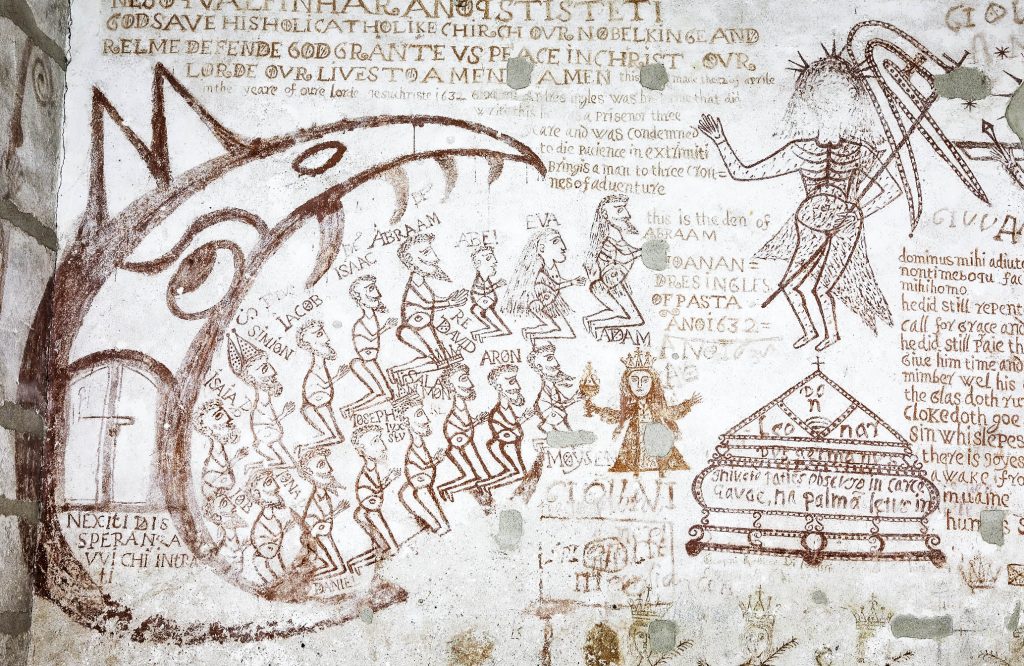When we are ‘psychologically unconscious’ then we are invariably ‘insincere in everything we do’. Sincerity is an impossibility for us (which is a bit of a killer if there ever was). This statement as we have just expressed it may not necessarily mean very much to us; it certainly won’t mean anything to us unless we understand what is meant by this term ‘psychologically unconscious’. What then is the meaning of the term ‘unconscious’, psychologically speaking? One answer would be to say that we are ‘unconscious’ when we are ‘insincere without knowing it’ (or when we are ‘playing a game without knowing it’, which is of course the same thing). This isn’t quite as circular an answer as it may first appear to be because as soon as we start talking in terms of ‘playing a game’ we start getting a glimmer of understanding. ‘Playing a game’ means that we are pretending and if we are pretending then we can’t be sincere! We have to say a bit more about it than just this however because it is possible to be pretending and yet at the same time be sincere in ourselves, just as long as we actually know that we are pretending. It’s when that we don’t know that the trouble starts. We can actually lose ourselves in pretending and that’s the whole point right there. We can very easily ‘lose ourselves in pretending’ and when we do this we don’t know that we are pretending and this of course means that we can’t ever be sincere, no matter how much we may want to.
When we’re ‘unconscious’ then, we’re ‘pretending without knowing we’re pretending’; we’ve completely forgotten that we are pretending – we’ve got complete amnesia in this regard. Never was there a case of amnesia more complete! If someone were to ask us if we were ‘pretending to be who we say we are’ then we would almost certainly vehemently deny it – no matter how much I’m pushed on the matter I am always going to insist that there is no pretending going on, and what’s more, I’m going to be totally convinced that I’m telling the truth. That’s what it means to be ‘lost in pretending’ after all – it means that I don’t have the faintest clue that I am; it means that I’m ‘honestly convinced’ that there is absolutely no role-playing going on and that everything is perfectly legitimate and above board. And yet this insistence of ours is a joke! We are so very literal about our identity, we are ridiculously literal and ‘matter-of-fact’ about it and the reason we can say this that this is ‘ridiculous’ or ‘a joke’ is because being literal or being matter-of-fact means one thing and one thing only – it means that we are not paying any attention at all to what we’re actually saying. We are taking what we are saying totally for granted – that’s the only way literal meanings can get to be literal, after all. We have to be utterly incurious about the many ways in which what we’re claiming to be true are not actually true after all. This is what it means to be unconscious, therefore.
‘Literal truths’ don’t get to be literal truths all by themselves; they don’t ‘occur naturally’, as it were. They have to be arranged in advance and we do this by picking a meaning (or assigning a meaning) and then never revisiting it. We stick, we shut the book right there. The whole point is due to never revisit the meaning that we have assigned and so in this way the impression is created that the meaning so chosen the set in stone, forever changing, absolutely reliable, etc. There is absolutely nothing intrinsically interesting about a literal truth and that’s why we skip over it as quickly and as briskly as we do. That’s why literal or concrete words are always uttered in such dull, blank way – there is no poetry in the literal truth, no magic, no life. It’s like a shopping list – it may be of practical use sometimes but it certainly doesn’t transport us to another world! It’s true to say that we aren’t necessarily looking for poetry in our shopping lists and that’s fair enough, but it is surely rather odd that we should wish the same type of dead literal meaning to be applied to ourselves. The whole world, the whole universe is absolutely loading in poetry, in metaphor, so full of poetry in fact that it can never be exhausted – yet who we see ourselves as being does not partake in that poetry in the slightest. There is no magic, no mystery, no matter for in the concrete identity and there can surely be no argument on this point.
When someone asks me who I am I answer immediately – I am this, I am that, I am such and such an identity, I am Joe Bloggs, I am Peter Goodfellow, I am Sarah Longbottom, I am Sally Hardcastle, and so on and so forth. There is no moment of ‘not knowing’, no touching upon any mystery. We are the same as a shopping list in this regard. This might seem like a somewhat trivial way of explaining what we’re talking about it isn’t. We could say that a name or formal identity is necessarily a convention, and that it can’t be expected to tell us anything about the soul of the person who has the name, but there is more to it than this – when I am asked who I am and I automatically reply I don’t feel that I merely imparting some tokenistic bit of information, I really do feel that I am who I say I am! There is no sense of irony, in other words, and there should be. This isn’t always true of course but if we were to pay attention we would see that it almost always is – our sense of who we are is a concrete sense, the only exception to this rule being that wet when we are in some ‘altered state of consciousness’, which isn’t generally very often. This is observably true; our sense of ‘who we are’ is a reliable constant that we bring carry along with us wherever we go, like familiar briefcase or handbag that we never leave behind. The world around me might vary widely during the course of the day but the constant thread in all this is my sense of identity, which – as we have said – always stays the same. This is how I know myself to be myself – I couldn’t talk about my ‘self’ otherwise! The word would have no meaning…
It absolutely is the case that this unchanging viewpoint is only a convention that we adopt for the sake of convenience. It’s a convention that has become much more than a convention however – it has become fixed, it has become ‘the rigid inability to do otherwise’. We have invested the entirety of our being in what was only ever a formal convention – that ‘will do us’, so to speak. So even though we see this identity as being who we are it is also absolutely the case that this constant viewpoint has no genuine relationship to us at all. It is true – as the esoteric psychologists say – that the fixed viewpoint develops ‘a life of its own’ and starts trying to organise everything around itself so as to create the perfectly convincing illusion that the fixed viewpoint ‘really is us’, but our undeniable conviction in this matter doesn’t mean a thing, it certainly doesn’t mean that this crypto-autonomous viewpoint is us!As we said earlier, it is in the nature of everything to be infinitely subtle, infinitely profound, infinitely multi-valent and absolutely lacking in any banal ‘regularities’, so how is it that we throw our lot in so blithely with the most banal old regularity of them all, which is the concrete identity? What on earth (other than the concrete identity itself) possesses us to do such a stupid thing? If the entire universe is composed of marvellous, unfathomable metaphor then what on earth are we up to when we insist upon the ‘final reality’ of the poor old literal self’? The world may be full of wonders (the world is full of wonders) but when we filter it through the reducing valve of the constant viewpoint which is the rational ego then there is nothing left except empty, hollow redundancy. Whenever reality is reduced to a stream of ‘literal truth’ it becomes redundant – the only way the thought-mediated literal narrative of our lives could ever stop being redundant would be if it gave up being literal all the time, and this is a trick that the thinking mind just can’t carry off.
We have a number of ways of talking about this business of being ‘psychologically unconscious’, therefore. In Romans 6:23 we read that ‘The wages of sin is death…’ and this phrase has proved ever-popular with street preachers and evangelists, who clearly feel that it backs up their key message pretty well. The key message that we’re talking about here is the message that says “if you don’t convert to the religion that I’m espousing then you won’t get to receive Life Everlasting’. You will miss out on Life Everlasting and you’ll get Death Everlasting instead! You’ll miss out on the big prize and what’s more you’ll be eternally damned instead. Obviously there isn’t a lot of subtlety in this message (there isn’t any subtlety in it) and this ought to tip us of that what we hearing isn’t wisdom but good old-fashioned coercion or control. There is wisdom in the Bible, but certainly not in the way that these guys are interpreting it! The way these guys interpret it they might as well be hitting us over the head with a hammer. A more subtle (or psychological) interpretation of this passage from the Bible might be something like ‘The wages of unconsciousness is redundancy’. Unconsciousness, according to Jung, is ‘the original sin’ and so we might not go too far wrong if we say this. One way of talking about unconsciousness is to say that it is ‘the benighted state we fall into when we unreflectively take the thinking mind’s literal description of the world to be the same thing as the world itself’. The ‘real’ – we might say – lies not in the literal description but in the elusive essence that we are so clumsily trying to nail down with our thoughts. The ‘sin’ in this case is to be hoodwinked by our crude thoughts and not pay any attention to the trickery that is going on here. It’s as if we are insisting, time after time, on voting for some clownish buffoon of a demagogue, despite all the evidence (which is readily available) that they haven’t got a clue as what they’re talking about and – as a result – will unfailingly lead us all to ruin. We fall for half-witted political slogans and make complete asses of ourselves in the process.
So – by this interpretation – the sin is that we allow ourselves to be gulled by the rational mind into believing the world to be as dull and limited as it tells us it is, even though our senses and our intuition are letting us know different every single day of our lives, and the ‘wages’ for this sin is that we get to live out the course of our lives in ‘the blank world’ that thought has created for us. We don’t see this state of affairs as ‘death’ but it is – it is the ‘living death’ which is (as Plato says) the shadow-life lived by those who think that they are alive when they are not. This may sound like rather a harsh thing to say but this is always exactly what it feels like when we ‘wake up’, so to speak – we feel (most uncannily) as if we ‘weren’t there’ a moment ago; we feel as if there had been ‘nobody home’. This is a very weird thing therefore: for almost all of lives there is ‘nobody home’, and yet it absolutely feels as if there is. No one can deny that we feel very much as if there is someone home, as if I am ‘inhabiting my own life’, so to speak, but this is simply ‘an illusion just waiting to be perceived as such’. This is what all the mystics have always said.
We have ‘got things backwards’ therefore and this could be another way of defining the state of psychological unconsciousness – we could define it as ‘the state in which we see everything backwards’. Going back to the example we gave it to be earlier on in this discussion of the concrete-minded street preacher, we could say that he sees the literally-constructed narrative of that is provided by the rational thought-process as being ‘life’, and therefore the reward we will receive for faithfully adhering to God’s plan for us on earth is seen as being the infinite extension of this tedious rational narrative. That’s how ‘Life Eternal’ is seen by the concrete mind – as the infinite extension of what we have going on for us right now, as ‘the infinite extension of the game we are playing without knowing that we are’. Were that game (or ‘pretence’) to end we would see this to be ‘death’, which is to be regarded as a punishment for sin. But the non-concrete way of understanding this is to say that it is us believing in the rational/literal narrative that is the sin, the punishment for which is being subsumed within a hollow redundancy that we can’t see as such.
Saying that the literal narrative which the thinking mind provides us with is ‘a redundancy’ means that even though there seems to be a story unfolding (and that we are flatly convinced that ‘stuff really is happening’) actually there is no story unfolding and there is nothing happening! We don’t realise this at the time it is true, but that doesn’t make any difference. Our conviction counts for nothing; our belief in the illusion counts for nothing. The moment we ‘wake up’ we realise that – in reality – there had been nothing at all happening and that the narrative question that we hung everything on (all our highs and lows) is quite fatuous. The reason nothing has been happening, and no story has been unfolding, is because the viewpoint from which he we had been (apparently) experiencing the unfolding of the rational/literal narrative does not exist. Not really exist. It only ‘existed’ because we (unwittingly) chose to for it to. Or to put this another way, the only reason there appeared to be ‘a story happening’ was because we were pretending (without knowing it) to be someone who doesn’t really exist As soon as we cease pretending to be this concrete, rationally-understood identity then the narrative that was belonging to that identity is of course revealed to be unreal. It was never really ‘a thing’ at all; it was only ‘a thing’ just as long as we falsely believed ourselves to be this non-existent concrete identity.
Image credit – Terri Tuckwell, from merimbulanewsweekly.com






